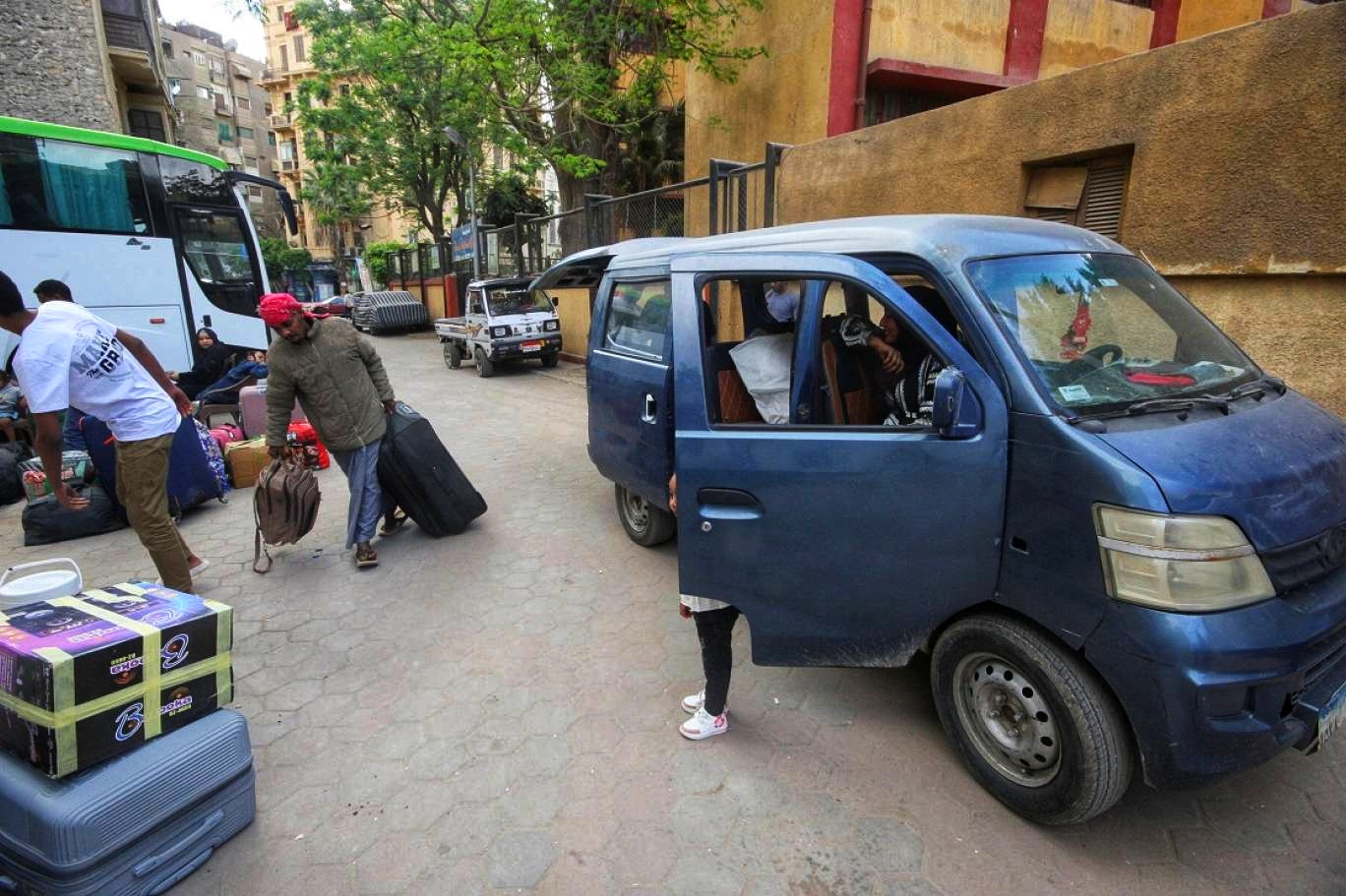Salma Hashem Ramadan bid farewell to her sister before joining a group of Sudanese who decided to return home from Egypt after the Sudanese army regained large areas of Khartoum from the paramilitary Rapid Support Forces (RSF).
Salma took her sister’s two children along on one of the trips organized by the “Safe Return” initiative, which was launched to provide a secure route for Sudanese in Egypt to return to their homeland—away from smuggling networks—particularly for those without residency documents or the means to afford travel costs.
Specialized Services
Yousri Saleh Abu Zaid, co-founder of the initiative, said: “The initiative began during last Ramadan when my friend and I were looking for a safe way for Sudanese to return to their country instead of resorting to smuggling.” He explained that by April 28, around 53,000 Sudanese citizens had returned through the initiative.
He noted that the initiative, supported by two Sudanese businessmen, offers two types of trips: one to the Egyptian-Sudanese border at the Sudanese city of Halfa, costing 1,200 Egyptian pounds (around $24), allowing passengers to choose their preferred route to continue into Sudan; and the other, a direct trip to areas inside Sudan such as Khartoum, costing 4,500 Egyptian pounds (around $90).
Abu Zaid added, “The cost for one person to Halfa is 1,200 Egyptian pounds ($24),” noting that the initiative offers subsidized trips for some Sudanese wishing to return. The service is free for people with disabilities, relatives of those who fought in the war, and those in need. These individuals receive free tickets up to the Egyptian-Sudanese border.
A Safe Return
The co-founder continued, “We cover the first trip cost—850 Egyptian pounds (around $17)—for people with special needs, and we also cover the expenses for families of martyrs whose guardians died in the Battle of Dignity (referring to the Sudanese army’s war against the RSF), as well as for those disabled in that battle.”
Salma said she took her sister’s two children so they could sit for their preparatory school exams. Her sister plans to join them later after selling their household belongings in Egypt and completing other arrangements.
Salma arrived in Egypt a year and two months ago. Like many other Sudanese, she decided to return after the situation in Khartoum improved, despite ongoing challenges in accessing basic services such as water and electricity.
She added, “Currently, the situation is good. The neighborhood we live in has no presence of the RSF, and we can manage the issues of water and electricity shortages.” She continued, “It’s our homeland, our family is there, and we feel reassured returning to it.”
Abu Zaid also mentioned that other groups can benefit from reduced prices, such as those who pay the full fare for a safe, obstacle-free journey.
Risks Ahead
Sudanese citizen Arman Hussein Mousa Maqbool, while boarding the bus, said, “I’m very happy. Thanks to Egypt for hosting us and for the kind treatment we received there.”
Meanwhile, the city of Port Sudan in eastern Sudan was subjected to attacks over several days, including drone strikes carried out by the RSF, which burned down the country’s largest fuel depot and damaged the main gate for humanitarian aid.
These drone strikes on Port Sudan opened a new front, targeting the army’s main stronghold in eastern Sudan after the army expelled the RSF from most central regions and pushed them westward last March.
According to the United Nations, the war—which erupted from a conflict over the transition to civilian rule—has displaced over 12 million people and pushed half the population to the brink of severe hunger.
